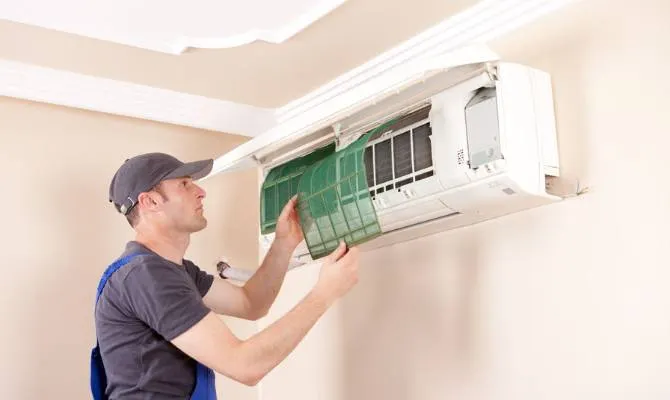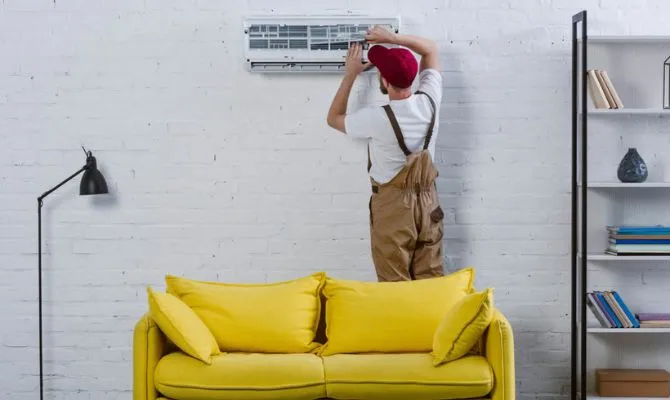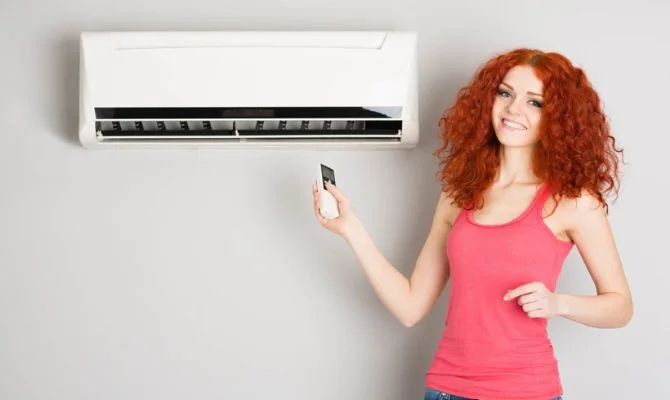The air conditioner is an essential device that provides comfort in the scorching heat, but what if it doesn’t turn off? It can be frustrating, not to mention the increase in energy bills. In this essay, we’ll explore the common reasons why your air conditioner won’t turn off and what you can do to solve the problem.
AC Keeps Running After Temp is Reached
A malfunctioning compressor can be caused by several issues, including low refrigerant levels, a clogged air filter, or a faulty sensor. Low refrigerant levels can cause the compressor to overheat and shut down, leading to an AC that won’t turn off. A clogged air filter can restrict airflow to the compressor, causing it to work harder and overheat. Finally, a faulty sensor can cause the compressor to misread the temperature and keep running.
To diagnose a malfunctioning compressor, a professional HVAC technician will check the refrigerant levels, clean or replace the air filter, and check the sensor. If the compressor is damaged, the technician may need to replace it.
Another common reason why an AC keeps running after the desired temperature is reached is that the unit is too small for the space it’s trying to cool. If your air conditioner is undersized, it will struggle to cool your home, leading to longer run times and higher energy bills. In this case, upgrading to a properly sized AC unit can solve the problem.
Finally, a dirty or clogged evaporator coil can also cause an AC to keep running. The evaporator coil is responsible for removing heat from the air. If it’s dirty or clogged, it can’t do its job efficiently, causing the AC to run longer to maintain the desired temperature. To fix this issue, a professional HVAC technician will clean or replace the evaporator coil.
In conclusion, an AC that keeps running even after the desired temperature is reached can be caused by several factors, including a faulty thermostat, a malfunctioning compressor, an undersized AC unit, or a dirty or clogged evaporator coil. By understanding the common reasons for this issue, you can troubleshoot the problem and take steps to fix it.
If you’re unsure how to fix the problem, it’s best to call a professional HVAC technician to diagnose and fix the issue. Regular maintenance of your AC system can also help prevent these issues from occurring and keep your home comfortable and energy-efficient.
Air Conditioner Won’t Turn Off
Another reason why your AC won’t turn off is that the blower motor is malfunctioning. The blower motor is responsible for circulating the air through your home. If it’s not working correctly, it may not turn off even when the AC is not running. This can cause the AC to keep running even when it’s not needed, leading to higher energy bills.
To diagnose a malfunctioning blower motor, a professional HVAC technician will check the motor’s wiring, bearings, and control board. They may also check the capacitor, which is responsible for starting the motor. If the motor is damaged, the technician may need to replace it.
Another common reason why an AC won’t turn off is that the temperature sensor is faulty. The temperature sensor is responsible for detecting the temperature in your home and signaling the AC to turn on or off. If it’s not working correctly, it may not detect the correct temperature, causing the AC to keep running.
To diagnose a faulty temperature sensor, a professional HVAC technician will check the wiring and the sensor’s accuracy. They may also check the thermostat to ensure it’s communicating with the temperature sensor correctly. If the temperature sensor is damaged, the technician may need to replace it.
In some cases, an AC that won’t turn off may be due to a wiring issue. If the wiring is damaged or the connections are loose, it can cause the AC to malfunction. To diagnose a wiring issue, a professional HVAC technician will check the wiring and connections to ensure they’re secure and in good condition. They may also check the control board to ensure it’s functioning correctly.
In conclusion, an AC that won’t turn off can be caused by several factors, including a faulty relay switch, a malfunctioning blower motor, a faulty temperature sensor, or a wiring issue. By understanding the common reasons for this issue, you can troubleshoot the problem and take steps to fix it. If you’re unsure how to fix the problem, it’s best to call a professional HVAC technician to diagnose and fix the issue. Regular maintenance of your AC system can also help prevent these issues from occurring and keep your home comfortable and energy-efficient.
Why Won’t My AC Turn Off?
Another reason why your AC may not turn off is that the evaporator coil is dirty. The evaporator coil is responsible for absorbing heat from the air. If it’s dirty, it can’t absorb heat efficiently, causing the AC to keep running.
To fix this issue, turn off the power to your AC and locate the evaporator coil. Clean the evaporator coil with a soft brush or a special coil cleaner. If the coil is heavily soiled, you may need to call a professional HVAC technician to clean it.
A malfunctioning thermostat can also cause your AC not to turn off. If the thermostat is not calibrated correctly, it may not detect the correct temperature in your home, causing the AC to keep running.
To fix this issue, turn off the power to your AC and locate the thermostat. Check the thermostat settings and make sure they’re correct. If the settings are correct, try recalibrating the thermostat. You can do this by turning off the power to the AC, removing the thermostat from the wall, and adjusting the small dial on the back of the thermostat. If this doesn’t work, you may need to replace the thermostat.
By understanding the common reasons for this issue, you can troubleshoot the problem and take steps to fix it. If you’re unsure how to fix the problem, it’s best to call a professional HVAC technician to diagnose and fix the issue. Regular maintenance of your AC system can also help prevent these issues from occurring and keep your home comfortable and energy-efficient.
AC Won’t Turn Off at Set Temp
If your AC won’t turn off at the set temperature, it could be due to a refrigerant leak. The refrigerant is the substance that cools the air. If there’s a leak, the AC may not reach the desired temperature, causing it to keep running.
To check for a refrigerant leak, turn off the power to your AC and locate the refrigerant lines. Look for any signs of oil or dirt around the lines, which may indicate a leak. If you suspect a refrigerant leak, you’ll need to call a professional HVAC technician to fix the problem.
Thermostat Won’t Turn Off AC
If your thermostat won’t turn off your AC, it could be due to a faulty sensor. The sensor is responsible for detecting the temperature in your home. If it’s not working correctly, it may not detect the correct temperature, causing the AC to keep running.
To fix this issue, turn off the power to your AC and locate the sensor. The sensor is usually located near the thermostat. Check for any signs of damage or corrosion. If it’s damaged, you’ll need to replace it.
AC Fan Won’t Turn Off
If your AC fan won’t turn off, it could be due to a faulty fan relay. The fan relay is responsible for turning the fan on and off. If it’s not working correctly, the fan may keep running.
To check if the fan relay is the issue, turn off the power to your AC and locate the relay switch. Remove it from the circuit board and check for any signs of damage or corrosion. If it’s damaged, you’ll need to replace it.
Conclusion
In conclusion, an AC that won’t turn off can be frustrating, especially during hot summer days. There can be several reasons why your AC won’t turn off, including a faulty thermostat, malfunctioning compressor, dirty air filter, refrigerant leak, faulty sensor, faulty fan relay, or malfunctioning thermostat. By understanding the common reasons why your AC won’t turn off, you can troubleshoot the problem and take steps to fix it. If you’re unsure how to fix the problem, it’s best to call a professional HVAC technician to diagnose and fix the issue. Regular maintenance of your AC system can help prevent these issues from occurring and keep your home comfortable and energy-efficient.



